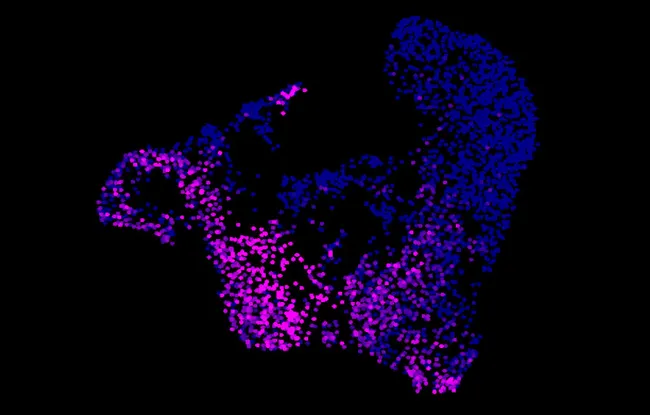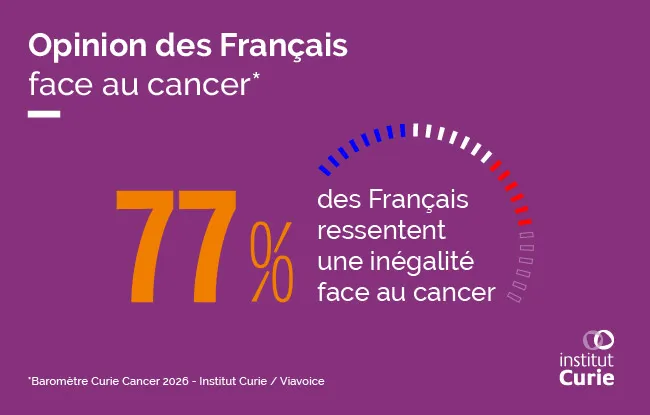- Home >
- Institut Curie News >
- The key role of “junk” DNA in the exhaustion of T cells in cancer
Playing a crucial role in the immune response, T cells destroy cells infected by a virus or tumor cells. The cancer cells produce antigens that subject the T cells to prolonged stimulation, leading to “exhaustion” of the T cells over time, rendering them ineffective.
However, some T cells are not as “exhausted” as others.
Some of them, known as “progenitors”, have retained a certain ability to kill cancerous cells, which is less the case for other so-called “terminal” T cells
Explains Dr. Christel Goudot, research engineer specialized in bioinformatics in the Immune Responses to Cancer team (Immunity and Cancer unit, Institut Curie / Inserm) at Institut Curie, led by Dr. Sebastian Amigorena, CNRS research director.
But the distinction between these two categories of “exhausted” cells is not well understood. It is however essential to understand it in order to improve treatment of cancer.
Analyzing dozens of data set
Within this context, researchers from the Immune Responses to Cancer team at Institut Curie studied the role of transposable elements in the genome within the context of tumor immunity.
The human genome is made up of 2 to 4% of genes and 40 to 50% of transposable elements. A whole segment of the genome has long been ignored! Recently, the arrival of sequencing methods has shown that these elements, also known as “retrotransposons”, play a part in gene regulation and expression. This is why we are so interested in them
explains Dr. Christel Goudot.
Bioinformatic analyses were carried out on around ten data sets sequenced from tissue or single-cell samples, taken from the scientific literature of the last five years, to study the messenger RNA produced when the genome is transcribed.
Deciphering the mechanisms of T cell dysfunction in tumors
Using these transcriptomic analyses, the researchers showed that a family of retrotransposons was repressed in the terminal exhausted T cells, whereas they were not in the progenitor T cells.
We also found that this regulation was performed by a transcription factor (Fli-1) involved in the progression of the progenitor T cell to a terminal T cell
Continues Dr. Goudot
This offers options for modulating the expression of these transposable elements for therapeutic purposes.
By revealing the importance of considering the expression of transposable elements, this work creates fantastic possibilities for immunotherapy against cancer, for example attempting to increase the expression of these transposable elements, alone or with those of genes, to preserve the T cells’ ability to kill tumor cells, or using these long-ignored retrotransposons as biomarkers in cancer patients...
The methods used in this study were developed through a collaboration with Mnemo Therapeutics, a biotech firm created by Institut Curie.
Reference: P-E. Bonté et al., Selective control of transposable element expression during T cell exhaustion and anti-PD-1 treatment, Science Immunology, 27 octobre 2023. DOI : 10.1126/sciimmunol.adf8838



